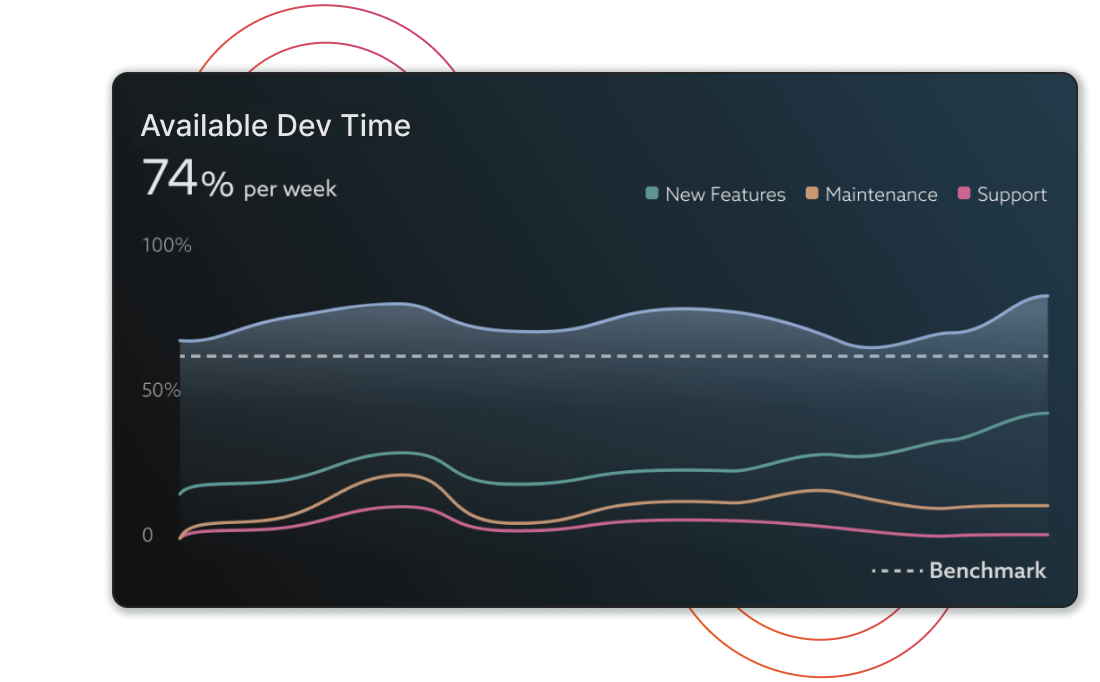Keep Reading
More information about how Uplevel helps leaders maximize value delivery:
Take the guesswork out of figuring out what your engineers are working on and how long it's taking them.
Uplevel helps you visualize time allocation trends over time so that you can maximize capacity for new value work without adding headcount.


“We weren’t able to see the 360° view of all of our engineering effort and the apples-to-apples comparison across teams. I’d ask my managers for a complete view of what teams were working on, and they’d have to explain that that work just wasn’t being captured by our previous platform.”
.png)
Automatically classify work into R&D buckets like new value, sustenance, and defects, even if Jira is messy or not standardized
Uplevel associates PRs to Jira tickets to combine code effort with project tracking data

At-a-glance descriptions of engineering work across specific investment areas
Configurable data handling to account for your unique organizational practices in labeling Jira tickets
Keep your finance team happy at tax time by quantifying and simplifying capitalization reporting
See actual work by cost, FTE, and percentage of time
Jira alone doesn’t provide enough context for leaders of large teams to know how teams are spending their time or what is impacting value delivery. Why are PRs sitting in review? Why does one two-point issue remain unfinished while another is completed in three hours?
Uplevel offers a comprehensive view of your organization that looks across all data sources to better understand the investment of time spent. We provide the actuals in the “planned vs. actuals” conversation.
Yes! Because Uplevel looks across multiple data sources, we are able to understand actual time spent even when teams have different ways of working.
Our customers come to us with wide variability in how they track time and label work. Not only does every company have its own project naming conventions, but it’s not uncommon at the enterprise level for each team to have its own conventions as well.
Uplevel’s rules engine provides configurable data handling to account for different conventions in Jira and Azure DevOps projects. Custom fields are not required, though we can leverage them (as well as issue types, projects, and more) to build out a rule set that will help to translate all work into a higher meaningful story. Our ML model classifies issues automatically by interpreting the context of each ticket and grouping it into different high-level categories of work. This makes it possible to understand the investments your teams are making.
We begin by looking at each developer’s calendar, and then overlaying the activity signals from the tools they use every day (such as project tracking, version control, CI/CD, and chat). This allows Uplevel to identify a pattern of a “normal day” for each person and look for the time they spend working. This helps our models understand how they’ve actually spent their time and how much time is available for them to get their work done.
More information about how Uplevel helps leaders maximize value delivery: